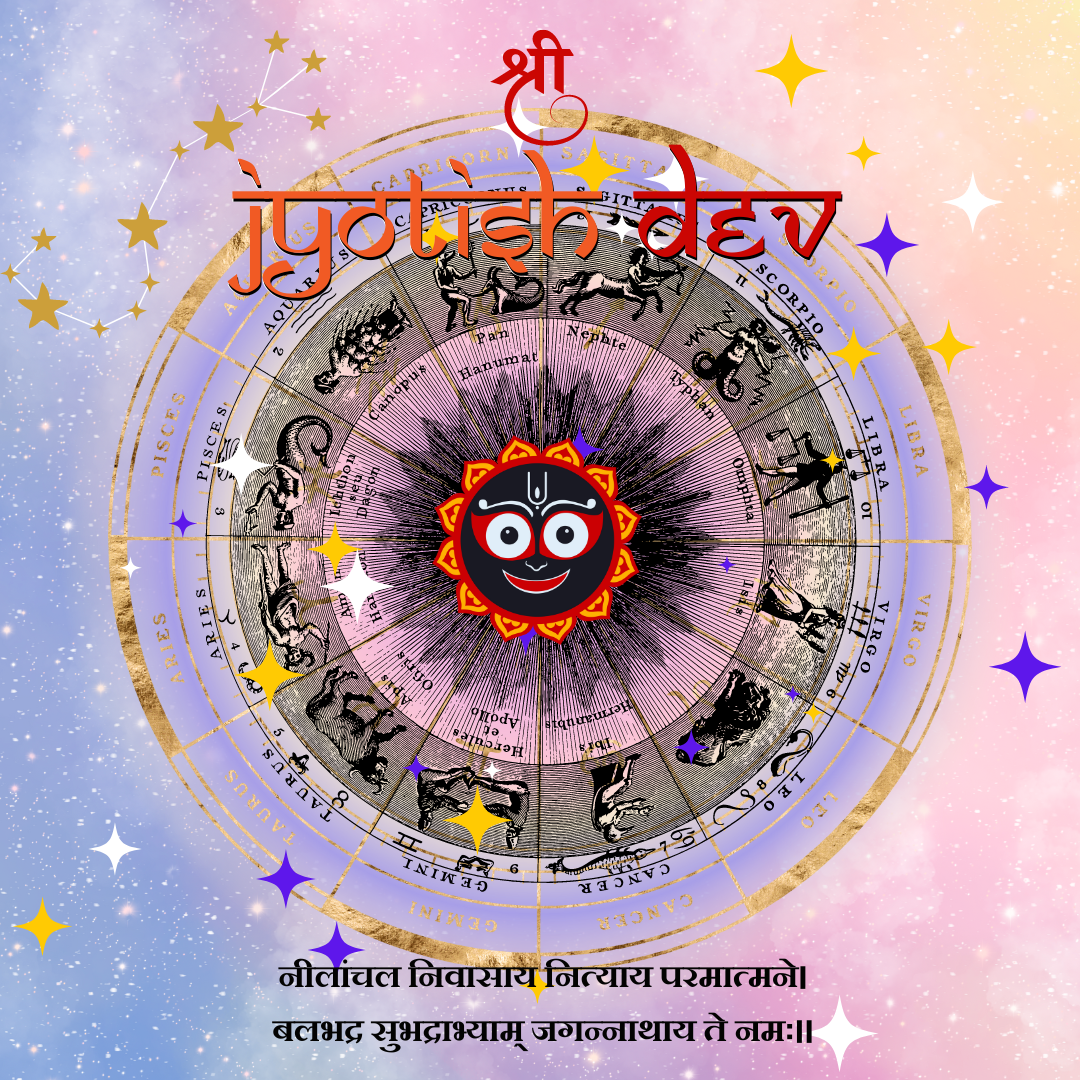Exploring the Scientific Methods in Vedic Astrology
You might wonder how Vedic Astrology, an ancient practice, can align with modern scientific methods. By applying scientific principles, you can explore its claims more rigorously. Many people, including 42% of Americans, believe astrology holds some scientific merit. This belief persists despite challenges in validating astrological predictions. The Vedic Astrology scientific analysis involves examining celestial patterns and their potential impacts on human life. While skepticism exists, the quest to understand astrology through a scientific lens continues to intrigue many.
Understanding Vedic Astrology
Definition and Historical Context
Vedic Astrology, also known as Jyotish, is an ancient system of astrology that originated in India. The Vedas, the oldest sacred Sanskrit texts that form the foundation of Hindu religion and philosophy, deeply influence Vedic Astrology. This practice dates back to a period between 5000 to 10,000 BC, making it one of the oldest forms of astrology known to humanity. Vedic Astrology provides a map of the soul's territory, aiming to quicken your journey and help you avoid delays in life's process.
Traditional Practices and Beliefs
In Vedic Astrology, practitioners believe that the positions of celestial bodies at the time of your birth can significantly influence your personality and destiny. This system uses a sidereal zodiac, which considers the actual positions of constellations in the sky. Unlike Western astrology, which primarily focuses on the sun sign, Vedic Astrology places greater emphasis on the moon sign and the ascendant.
Astrologers use a variety of charts and calculations to interpret the influence of planets and stars on your life. These include the birth chart, or Janam Kundali, which serves as a blueprint of your life. The practice also involves the use of Dasha systems, which are planetary periods that indicate the timing of events in your life.
People have practiced Vedic Astrology for over 5000 years, and it continues to be a significant part of the lives of many individuals, particularly in India. It offers insights into various aspects of life, including career, relationships, health, and spirituality. By understanding these traditional practices and beliefs, you can gain a deeper appreciation of how Vedic Astrology seeks to guide and inform your life's journey.
Vedic Astrology Scientific Analysis
In the realm of Vedic Astrology scientific analysis, you can explore various methods to understand its claims. By examining statistical data, recognizing patterns, and conducting empirical tests, you gain insights into how this ancient practice aligns with modern science.
Statistical Analysis
Correlation Studies
When you delve into correlation studies, you seek to identify relationships between celestial positions and human experiences. Researchers have attempted to find statistical links between planetary alignments and life events. However, studies like Carlson's Study on Natal Astrology Predictions in 1985 revealed that predictions based on natal astrology were no better than chance. This finding challenges the astrological hypothesis, urging you to critically assess the validity of such correlations.
Data Collection Techniques
Effective data collection is crucial in Vedic Astrology scientific analysis. You gather birth charts, planetary positions, and life events to create a comprehensive dataset. This data serves as the foundation for statistical analysis. Despite the meticulous collection process, large-scale tests by researchers like Geoffrey Dean and Ivan Kelly found no support for astrology when examining cognitive, behavioral, and physical variables. These results highlight the need for rigorous data collection and analysis.
Pattern Recognition
Identifying Celestial Patterns
Pattern recognition plays a vital role in understanding Vedic Astrology. You identify celestial patterns by observing the movements of planets and stars. Astrologers believe these patterns influence human behavior and destiny. While the identification of such patterns is central to astrology, scientific scrutiny often questions their predictive power. The subjective nature of astrological interpretation makes it challenging to provide replicable quantitative results.
Analyzing Predictive Models
In analyzing predictive models, you evaluate the accuracy of astrological forecasts. Vedic Astrology scientific analysis involves testing these models against real-world outcomes. Despite the allure of predictive astrology, empirical studies frequently reveal a lack of consistent accuracy. The subjective interpretation of astrological data contributes to this inconsistency, prompting you to approach predictive models with a critical mindset.
Empirical Testing
Experimentation in Astrology
Experimentation offers a scientific approach to testing astrological claims. You design experiments to assess the validity of astrological predictions. However, the absence of an empirical basis for astrology's validity often complicates these efforts. Scientific results neither confirm nor deny astrology, leaving room for further exploration. As you engage in experimentation, you contribute to the ongoing dialogue between astrology and science.
Case Studies and Results
Case studies provide valuable insights into the practical application of Vedic Astrology. By examining individual cases, you explore how astrological predictions align with real-life experiences. While case studies offer anecdotal evidence, they often lack the rigor of scientific validation. The subjective nature of astrological interpretation can lead to varied results, emphasizing the need for a balanced perspective in Vedic Astrology scientific analysis.
Examples of Scientific Studies
Notable Research and Findings
In the realm of Vedic Astrology scientific analysis, several studies have attempted to explore the validity of astrological claims. One notable study is Carlson's Study on Natal Astrology Predictions. This research aimed to test whether astrologers could accurately match individuals' natal charts with their psychological profiles. The results showed the predictions were no better than chance, challenging the reliability of natal astrology.
Another significant finding comes from psychological studies that examined how individuals perceive their personalities in relation to their astrological signs. These studies revealed that people often describe themselves in ways that align with their sun signs. However, researchers found no robust relationship between astrological signs and actual life outcomes. This suggests that while astrology may influence self-perception, it lacks empirical support for predicting life events.
Despite these findings, Vedic Astrology scientific analysis continues to intrigue researchers. Some studies have explored potential correlations between celestial movements and personality traits. Although most attempts to verify astrology's validity have failed to find significant correlations, one study suggested a link between certain personality traits and astrological data. This highlights the complexity of astrology and the need for further investigation.
Critiques and Counterarguments
Critics of astrology often point out the lack of a physical mechanism that connects celestial movements to human behavior. Scientific testing has consistently found no evidence to support astrological traditions. This absence of empirical validation raises questions about the scientific basis of astrology.
Skeptics argue that astrology's reliance on subjective interpretation makes it difficult to provide replicable results. The Vedic Astrology scientific analysis often faces challenges in standardizing methodologies and ensuring consistent outcomes. Critics emphasize the importance of rigorous scientific protocols to evaluate astrological claims effectively.
Despite these critiques, astrology remains a popular practice for many individuals. Its enduring appeal lies in its ability to offer insights into personal identity and life experiences. While scientific studies may not confirm astrology's predictive power, they contribute to an ongoing dialogue about the intersection of science and tradition.
Challenges and Limitations
In the realm of Vedic Astrology scientific analysis, you encounter several challenges and limitations that can impact the credibility and acceptance of astrological claims. Understanding these obstacles helps you critically evaluate the practice and its scientific potential.
Subjectivity and Interpretation
One of the primary challenges in Vedic Astrology scientific analysis is the inherent subjectivity involved in interpreting astrological data. Astrologers often rely on personal intuition and experience to make predictions, which can lead to varied interpretations. This subjectivity makes it difficult to achieve consistent and replicable results, a key requirement for any scientific discipline.
"Astrology traditionally has had no such mechanisms or explanations for the influences that it claims."
Without standardized mechanisms, astrology struggles to provide objective explanations for its predictions. This lack of objectivity can lead to skepticism about its scientific validity. You must approach astrological interpretations with caution, recognizing that personal biases and perspectives can influence the outcomes.
Lack of Standardization
Another significant limitation in Vedic Astrology scientific analysis is the absence of standardized methodologies. Unlike established sciences, astrology lacks a unified framework for conducting research and validating claims. This lack of standardization can cause inconsistent findings and hinder the development of a cohesive body of knowledge.
"If after a few millennia all these forms of astrology have not converged, the claim of astrology to be a science seems rather suspect."
The diversity of astrological practices and interpretations further complicates efforts to establish a standardized approach. You may find that different astrologers use varying techniques and tools, leading to discrepancies in their predictions. This variability challenges the notion of astrology as a science and underscores the need for rigorous scientific protocols.
Despite these challenges, the exploration of Vedic Astrology through scientific analysis remains a fascinating endeavor. By acknowledging the limitations of subjectivity and lack of standardization, you can engage in a more informed and critical examination of astrological claims. This awareness encourages a balanced perspective, allowing you to appreciate the cultural and historical significance of astrology while recognizing the need for continued research and dialogue.
Future Directions for Research
Integrating New Technologies
In the evolving landscape of Vedic Astrology, new technologies offer exciting possibilities for research and practice. You can harness the power of algorithms and data analysis to enhance the accuracy and accessibility of astrological insights. A Mumbai-based start-up exemplifies this trend by combining astrology with technology. They use algorithms to present astrological knowledge in an easy-to-understand manner. This approach acknowledges that while astrology involves studying mathematical patterns, human interpretation can be prone to errors. By leveraging technology, you can minimize these errors and provide more reliable insights.
Astrology, as a predictive art, benefits from technological advancements that allow for more precise pattern recognition. With the aid of software, you can analyze vast datasets of celestial movements and human experiences. This integration not only improves the accuracy of predictions, but also democratizes access to astrological insights. You no longer need to rely solely on traditional methods; instead, you can explore astrology through digital platforms that offer personalized readings and interpretations.
Expanding Cross-disciplinary Studies
The future of Vedic Astrology research lies in expanding cross-disciplinary studies. By collaborating with fields such as psychology, sociology, and data science, you can gain a deeper understanding of astrology's impact on human behavior and society. For a long time, people have viewed astrology as a tool to gain insights into personality traits and predict future events. However, its potential extends beyond individual predictions.
Cross-disciplinary studies allow you to explore how astrology intersects with other areas of knowledge. For instance, psychological research can shed light on how individuals perceive their personalities in relation to astrological signs. Sociological studies can examine the cultural significance of astrology and its role in shaping societal norms and beliefs. By integrating these perspectives, you can develop a more comprehensive understanding of astrology's influence.
Astrology can offer valuable insights to scientists seeking to understand complex phenomena. As Toben/Wolf noted, mathematicians can describe the limits of space-time, but they struggle to explain what lies beyond. Astrology provides a framework for exploring these higher levels of understanding. By bridging the gap between science and spirituality, you can contribute to a more holistic view of the universe.
In conclusion, the future of Vedic Astrology research holds immense potential. By integrating new technologies and expanding cross-disciplinary studies, you can enhance the accuracy and relevance of astrological insights. This approach not only enriches your understanding of astrology but also fosters a deeper appreciation for its cultural and historical significance. As you continue to explore these avenues, you contribute to the ongoing dialogue between tradition and innovation.
Scientific methods offer a promising avenue for analyzing Vedic Astrology. By applying statistical analysis and empirical testing, you can explore its claims with greater rigor. Continued research and exploration are crucial in bridging the gap between science and traditional practices. This approach not only enhances your understanding of astrology but also fosters a deeper appreciation for its cultural and historical significance. Embrace open-mindedness as you navigate this intersection, recognizing astrology's potential to illuminate areas where science and spirituality converge.
See Also
Exploring Psychological Astrology for Enhanced Self-Understanding

